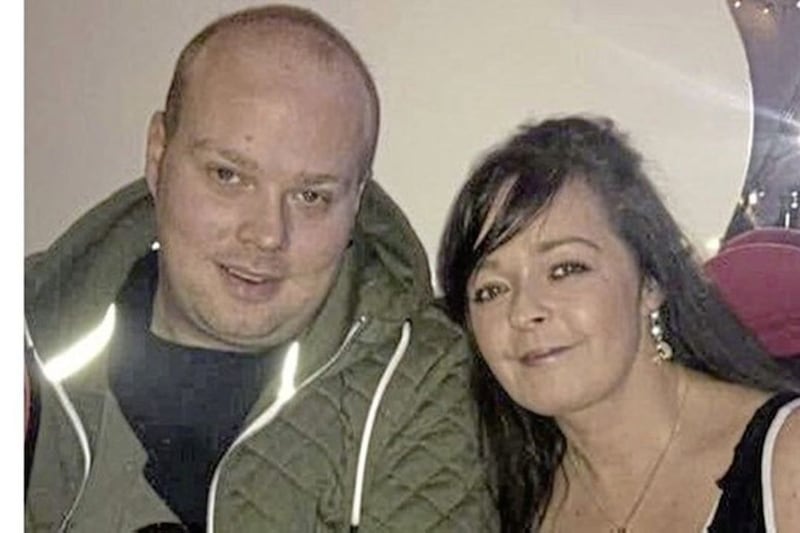THE death of two good friends from an accidental overdose is proof that drugs do not discriminate on age, the coroner for Northern Ireland had said.
Patrick McGurgan was delivering his findings into the deaths of Stuart Robinson (31) and Kelly Watters (42) at Mr Robinson's Belfast flat in January last year.
The bodies of the pair were discovered by Ms Watters' son Glen Madine who found his mother slumped forward on the sofa and her friend stretched out on a bed in the property at Klondyke Street in the Shankill area.
Mr Madine told yesterday's sitting of Belfast coroner's court that drugs had changed his mother. "They broke her," he said. "When she was off them she was happy as can be, full of life. She loved everybody and everybody loved her."
The inquest heard from state pathologist Dr James Lyness who said that both of the deceased had fatal levels of alprazolam (Xanax) and pregabalin in their bloodstream as well as a number of other drugs.
When questioned by the coroner, Dr Lyness confirmed that alprazolam (Xanax) and pregabalin are becoming increasingly associated with a drugs abuse culture in Northern Ireland and that the former is not prescribed by the NHS.
Statements were also given by the GPs of both the deceased. Dr Carol Keys from Albertville Surgery said Ms Kelly had suffered mental health problems from 2006.
On her last appointment in 2017, she had talked about "life not being worth living".
However, she told her doctor that her sons would be the reason she would not harm herself.
Although she had admitted using cannabis in the past, she denied she was re-using drugs or alcohol.
She also told her GP she was working for drug dealers to pay off her debts and that she was stressed as the result of paramilitary threats she had received to leave her home.
Dr Christopher Wilson of Old Church Practice told the court that Mr Robinson had a history of schizophrenia due to heavy cannabis use since the age of 14, which had resulted in psychosis.
However, his psychosis had stabilised and the GP said he always found Mr Robinson "very pleasant, a gentleman" and that there was no indication he was misusing drugs.
Ms Watters' mother Pauline described her only child as a "good girl" who was "always happy and helping others" and that she had only become involved in drugs when she was in her 30s.
"She had been through bad times but she was getting her life back on track. She told me she wasn't abusing anything any more," she said.
Mr Robinson's mother Madge said she was also unaware that her son, who she saw every day, had begun using drugs again and that his death had come as a "complete shock".
Witness Mandy Milligan, who admitted she also had problems with prescription medication, said she had been with Ms Watters and Mr Robinson the night before they were found dead and although she did not see them take anything that night, she knew they had taken drugs before.
Ms Watters' son said both his mother and Mr Robinson were "struggling" with addiction to prescription drugs and would take them most days.
"They kept it from most people," he said. "I just grew up around it and I did the same myself."
Summing up, Mr McGurgan said there was a serious problem in Northern Ireland with abuse of prescription medicine.
"If anyone has any doubt about the pain and suffering caused by drugs they just need to look at the faces of the two mothers who gave evidence in court today," he said.








